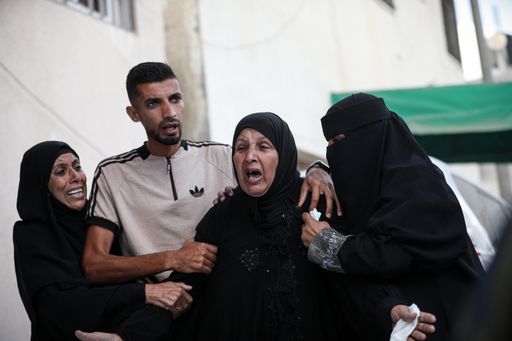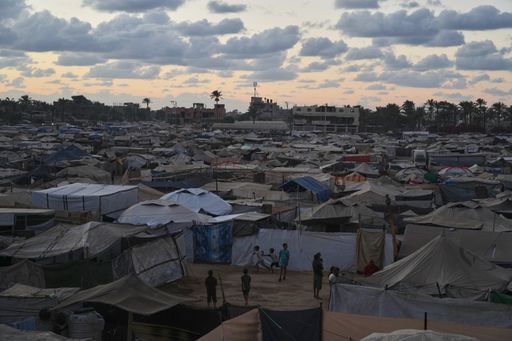Two years after Israel launched its war on Gaza, the Palestinian enclave lies in ruins, with its people starved, its journalists silenced and the conscience of the world’s powerful divided between complicity and selective outrage.
What began in October 2023 as Israel’s assault on Gaza has, by 2025, been formally recognised by a UN commission as genocide. Over 67,000 Palestinians — most of them women and children — have been killed, nearly 170,000 others wounded and an entire population forced into hunger and displacement.
The siege has starved Gaza not by accident, but by design.
‘Starvation as a weapon of genocide’
Israel’s systematic obstruction of food, water and fuel has triggered one of the worst humanitarian crises of the 21st century. In late August, the UN officially declared famine in parts of Gaza, confirming months of warnings from aid agencies and human rights groups.
For Ramy Abdu, chair of the Geneva-based Euro-Med Human Rights Monitor, Israel’s blockade represents “a policy of using food and water as weapons of war and tools of genocide”.
“Gaza’s famine differs from others in that it is not the result of natural disasters or economic collapse,” Abdu said. “Rather, it is deliberate — starvation used to kill civilians.”
Israel has maintained control over Gaza’s borders since 2006, even calculating daily calorie limits for Palestinians during previous blockades. When it declared a “complete siege” on October 9, 2023 — cutting off all food, water, fuel and electricity — the enclave’s fragile food system collapsed instantly.
With bakeries shuttered, water pumps silent and farmlands bombed, hunger became a weapon. Fishing bans and the destruction of Gaza’s agricultural “food basket” left no local alternatives.
“The occupation turned the vulnerability it had created over years into a weapon of slow annihilation,” Abdu said.
By early this year, starvation was spreading fast. Children, pregnant women and the elderly were the first to succumb.
Aid convoys were blocked, and when civilians tried to reach the so-called “Gaza Humanitarian Foundation” distribution zones established by Israel in 2025, they were met with deadly gunfire.
The UN says more than 1,760 Palestinians have been killed while trying to reach food, nearly 1,000 of them near those sites.
“This is not random chaos,” Abdu said. “It’s a carefully engineered policy of starvation.”
Related
Famine declared, accountability deferred
The UN’s Integrated Food Security Phase Classification (IPC) declared “famine” in Gaza on August 22, 2025, after all three critical thresholds — extreme food deprivation, acute malnutrition and starvation-related deaths — were breached.
The Palestinian Health Ministry in Gaza reports at least 460 deaths from hunger, including 150 children, with one in every five children in Gaza City now malnourished.
Yet even after the declaration of Israel-forced starvation, there has been no effective international response.
“The world has failed to compel Israel, which continues to flout UN resolutions with US and European backing,” Abdu said.
A month later, the UN’s Independent International Commission of Inquiry formally concluded that Israel had committed genocide, fulfilling four of the five acts defined under the 1948 Genocide Convention: mass killings, bodily and mental harm, destruction of living conditions and prevention of births.
“Labelling Israel’s actions as genocide should trigger obligations to prevent and punish,” Abdu said. “But in practice, little has been done.”
‘The deadliest war for journalists’
Even as Israeli-forced hunger and its bombs decimated Gaza, the Palestinian journalists kept reporting.
Among them was TRT World’s freelance journalist Yahya Barzaq, killed in an Israeli air strike on September 30, 2025, while uploading footage in Deir al Balah.
Before the war, Barzaq was known as a newborn photographer, his social media filled with portraits of infants. After October 2023, his feed turned to rubble, funerals and black lines of mourning.
“My body was displaced to the south, but my heart is still in Gaza City,” he wrote in his final post.
Barzaq became one of at least 250 journalists and media workers killed since the war began, making Gaza one of the deadliest places for the press in modern history.
Palestinian outlets say these deaths are not collateral but they are part of a deliberate campaign to silence Gaza’s storytellers.


